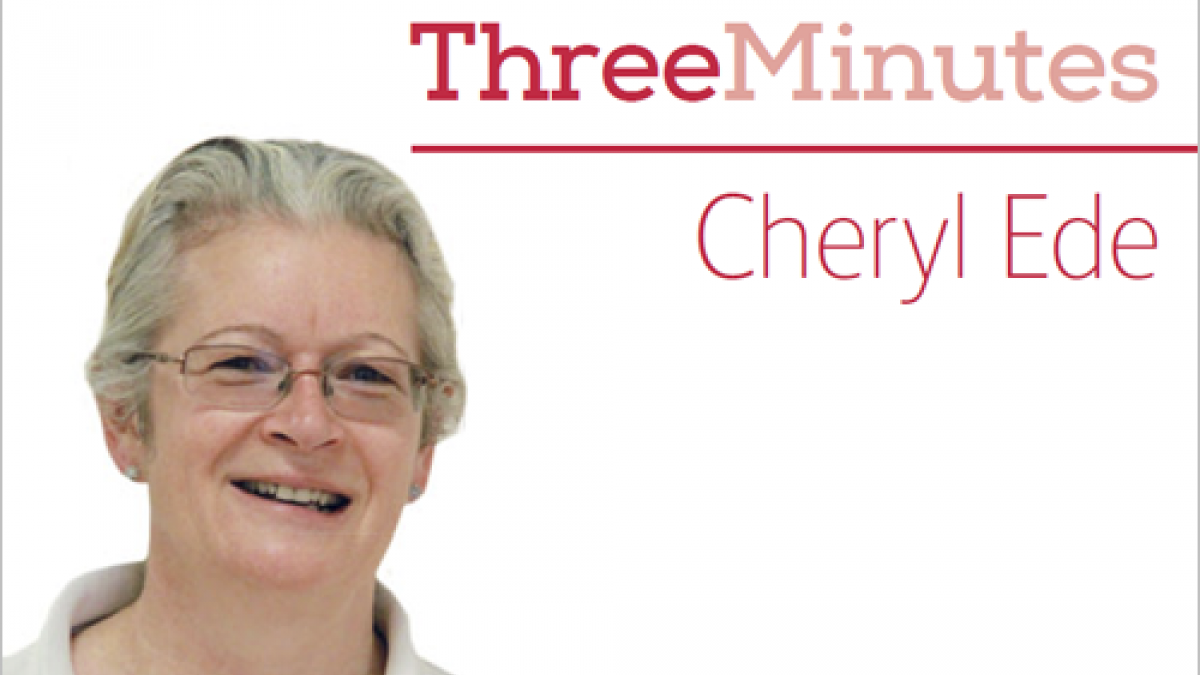Ever wondered what a staff side chair does? As staff side chair at Northern Lincolnshire and Goole NHS Trust, Cheryl Ede is happy to outline the scope of this rewarding role.

What does a staff side chair do?
I represent the views of staff at regular meetings with managament. The ‘staff side’ is the group of local union reps from the different unions you find in the NHS across the UK. I try to ensure that the views of staff from all areas of work are fully represented.
I chair a monthly meeting. Some reps can be quiet, others may have quite forceful personalities. The meeting needs direction, while allowing everyone to have opportunity to express concerns and views. My role is then to ensure that action points are clarified and to organise who will take these forward – some will be directed my way – in order to give an agreed union response.
I also chair our joint negotiating consultative committee; the staff side and managers’ meeting is chaired by me and the director of human resources on alternate months. It is then my responsibility to keep this meeting to task, while making sure that there are opportunities for those wishing to ask a question or comment.
Why is it an important role?
As the staff side chair, and as a CSP steward, I show that there are staff – in my case, physiotherapy staff – who are interested and active within the workplace. At meetings, I offer the members’ viewpoint – not necessarily the ‘party line’. I am not offering my own opinion, but those canvassed through having a broad union membership. The views put forward do not just represent a local response – they are also informed by CSP regional officers and networks.
It is important to be aware of issues, and give feedback, at a regional level when there a wider implications than just our trust – particularly with regard to nationally-agreed Agenda for Change terms and conditions. Remuneration and reward equate to whether our work is valued; and helps to retain a quality workforce within the NHS, for the benefit of our patients. If not fairly rewarded, physio staff may leave the NHS and our patients would pay the price. We need to defend these terms and conditions so that we can continue to provide the first class NHS service that we want for our patients.
Are you more or less sympathetic to managers as a result of your work?
If managers are open, honest and fair, it can give a better understanding of their pressures and agendas – so we can try to influence and work together to achieve a win-win situation. This maintains the good working relationship that is needed in our work within the NHS. Unfortunately, this may not always be the case.
At times, working with managers can be an opportunity to educate them about the benefits of good industrial relations and to point out that members of staff are the organisation’s most valuable asset.
Are physios good negotiators?
I believe that physiotherapy staff are good negotiators. We learn the skill through agreeing our continuing professional development learning needs and objectives – and through goal-setting with our patients. We reflect on all that we do and look towards finding an agreed outcome. We are good at being active listeners and at asking the pertinent questions, and are prepared to advocate for others.
What skills and experience are needed?
Communication and people skills: active listening and questioning, for example. I have found that it is not about confrontation, but about working to gain consensus. Where appropriate, you must be prepared to stand your ground. You need to be prepared to do some background research – accessing our training and support networks, and so on.
What are your memorable achievements as staff side chair?
So far, my most memorable achievement is keeping the staff side going when the previous longstanding chair left the trust. I hope my next achievement will be to support the defence of our Agenda for Change terms and conditions.
Would you encourage more physios to put themselves forward?
More CSP members should get involved as stewards and volunteer to be staff side chairs. There is a great support network of regional and national stewards. It an excellent opportunity to represent staff and physiotherapy with the senior management and executive team. fl
- Cheryl Ede is staff side chair, Northern Lincolnshire and Goole NHS Trust
Author
FrontlineNumber of subscribers: 0




































